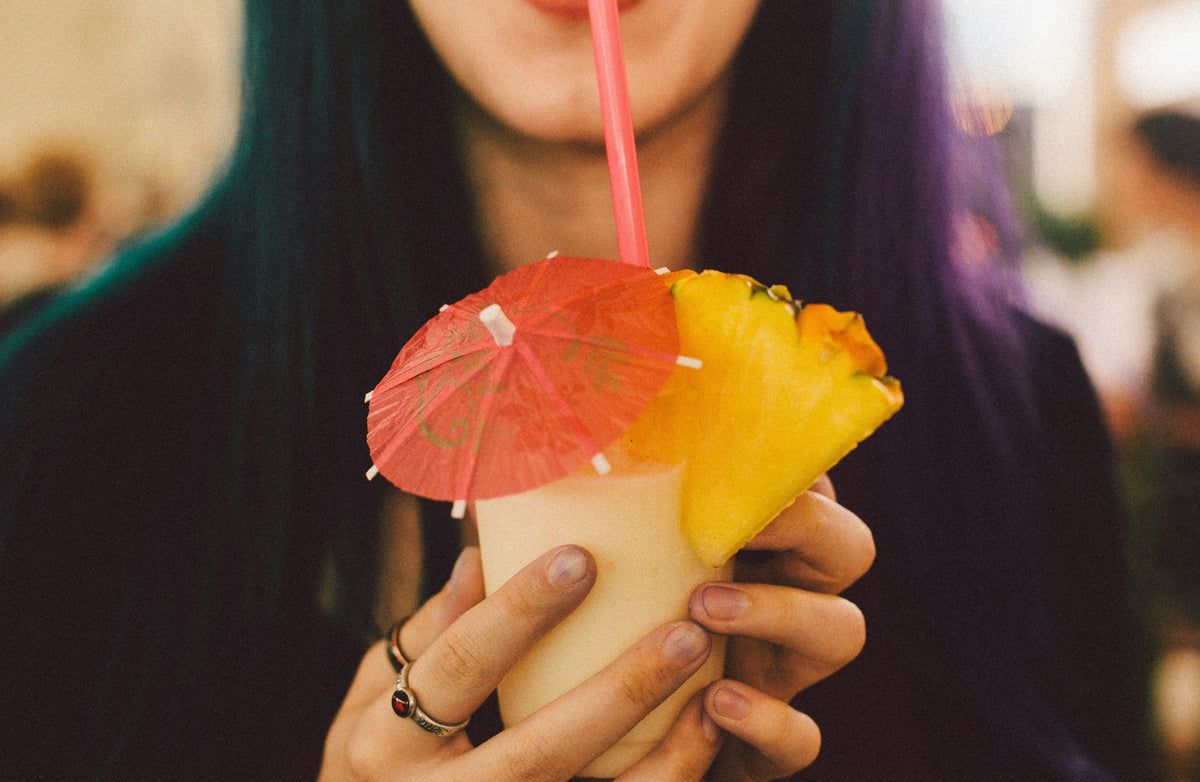Piña Colada: History and Our Special Version with Takamaka Rum
The Cocktail that Conquered the Caribbean
The Piña Colada is much more than just a tropical cocktail; it's a symbol of Caribbean beaches, radiant sunshine, and the good life. This iconic drink has won over palates worldwide, becoming one of the most recognized and requested cocktails at any respectable bar.
History and Origin: The Puerto Rican Dispute
As with many great cocktail classics, the exact origin of the Piña Colada is shrouded in some controversy. What we know for certain is that this delicious concoction was born in Puerto Rico, the island that declared it the national drink in 1978.
The most widely accepted version attributes its creation to Ramón "Monchito" Marrero Pérez, a bartender at the Caribe Hilton Hotel in San Juan. According to the story, Monchito worked for three months in 1954 perfecting the perfect recipe that would capture the tropical essence of Puerto Rico. The result was a sublime blend of rum, coconut cream, and pineapple juice that quickly became the hotel's signature drink.
However, there's another version that places the birth of the Piña Colada at the Barrachina restaurant, also in San Juan, where Spanish bartender Ramón Portas Mingot claims to have created it in 1963. Some even trace its origins back to the 19th century, when Puerto Rican pirate Roberto Cofresí allegedly served his crew a similar mixture to boost morale.
Whatever its true origin, the Piña Colada gained worldwide popularity in the 1970s, especially after Rupert Holmes' 1979 song "Escape (The Piña Colada Song)," which immortalized it in popular culture.
Our Version: Puerto de Oriente Piña Colada
At Puerto de Oriente, we've developed our own interpretation of this Caribbean classic, using premium ingredients that elevate the experience to another level. Our version stands out for its use of exceptional Takamaka Rum from the Seychelles, which brings unique nuances and extraordinary complexity.
Ingredients:
- 4 cl Takamaka White Rum
- 2.5 cl Takamaka Zenn'Annan Rum
- 12 cl Fresh Pineapple Juice
- 2 cl Coconut Batida
- 2 cl Giffard Coconut Purée
- 1.5 cl Fresh Lime Juice
- One wedge of Fresh Pineapple
- Crushed Ice (enough to fill the Hurricane glass)
Preparation:
- In a blender, combine the Takamaka white rum and Takamaka Zenn'Annan rum, creating a characterful spirit base.
- Add the fresh pineapple juice, coconut batida, and Giffard coconut purée to achieve that characteristic creaminess.
- Squeeze the fresh lime directly into the blender to add that citrus touch that balances the sweetness.
- Add the fresh pineapple wedge and crushed ice until it fills the capacity of your Hurricane glass.
- Blend all ingredients until you achieve a smooth, creamy, and homogeneous texture.
- Serve in a well-chilled Hurricane glass.
Garnish:
Presentation is essential in such an iconic cocktail. Garnish with:
- An elegant pineapple leaf
- A generous bunch of fresh mint
- Fresh pineapple chunks
The Puerto de Oriente Touch
What makes our Piña Colada special is the combination of two expressions of Takamaka rum: the white, which provides freshness and clarity, and the Zenn'Annan, an aged rum that adds depth, spiced notes, and an elegant finish. This duality creates a complexity that goes beyond the traditional recipe, maintaining the tropical essence while adding layers of flavor that will surprise even the most demanding palates.
The use of Giffard coconut purée alongside the traditional batida intensifies the coconut nuances without being cloying, while the fresh lime provides the necessary acidity to perfectly balance all the elements.
Come to Puerto de Oriente and discover why our Piña Colada has become one of our customers' favorites. A sensory journey to the Caribbean with the sophisticated touch that defines us.
Cheers and bon voyage to the tropics!





Publicar comentario